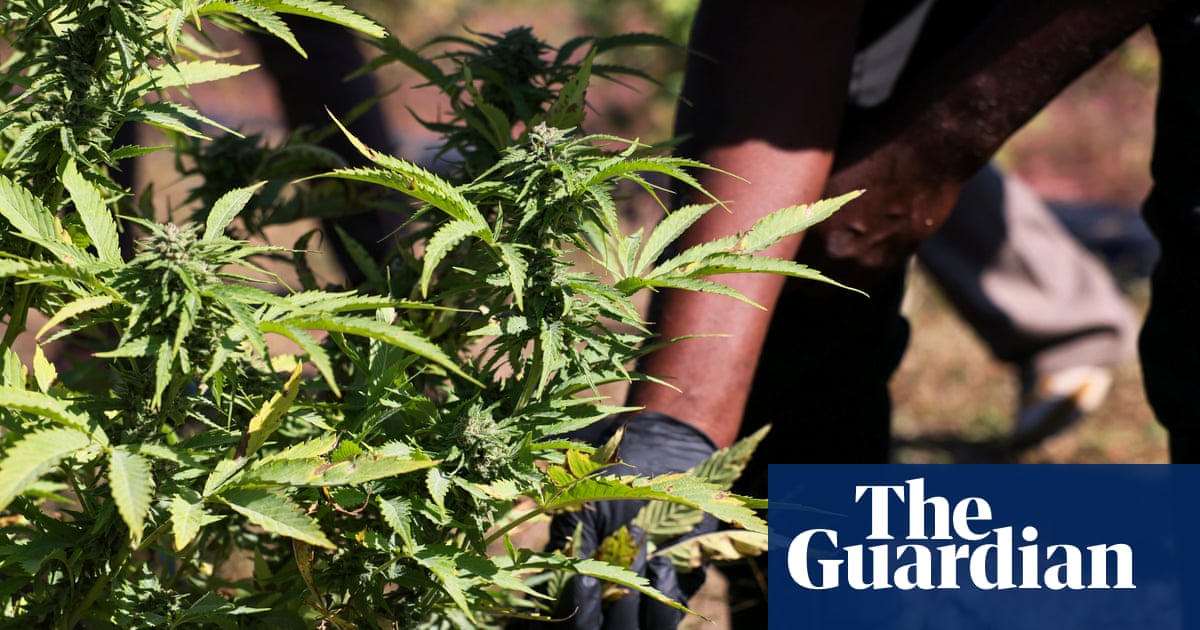A recentlyintroduced bill, if it passes, would allow research oncannabisdespite its schedule I status, which some experts say could help policymakers “craft effective” legislation in the future and potentially allow more clinical research on medical cannabis.
Representatives Dina Titus andIlhan Omarintroduced the Evidence-Based Drug Policy Act of 2025 (EBDPA) last week, which would radically ease research restrictions on cannabis and other schedule I substances.
Omar said in a statement that the law would allow research to catch up with the US’s increasing cannabis consumption: “We need drug policy to follow the science and reflect the reality on the ground in states across the country.”
Schedule I substances, including cannabis, heroin and MDMA, are legally defined as having “no accepted medical use” and a “high potential for abuse”. Medical cannabis proponents point out that cannabis’s federal schedule I status is contradictory, given that patients throughout the US already use cannabis for medical purposes.
The Biden administration pushed for cannabis to be reclassified as a schedule III substance, which would alter its legal status and make cannabis-based medicines eligible for FDA approval.
But the rescheduling process has continued to stall since Donald Trump reentered the oval office.
Unlike rescheduling, the EBDPA would be simple to enact. In itscurrent form, it repeals sections of the Office of National Drug Control Policy Reauthorization Act of 1998 that forbid federal funds from going towards research of schedule I substances, and that require the ONDCP to oppose any attempts to legalize schedule I substances.
Still, there are questions as to whether this bill has the ability to pass.
Katharine Neill Harris, a drug policy fellow at Rice University, says that the bill is a “modest proposal” and “it might be possible for it to gain the bipartisan support it needs to pass”.
Cat Packer, director of Drug Markets and Legal Regulation at Drug Policy Alliance, notes that the bill “has the potential to attract bipartisan support as a modest but meaningful step forward” due to it prioritizing “evidence over ideology”.
Though more comprehensive federal cannabis reform might be in the distant future, “the EBDPA should be seen as a neutral step that would enable policymakers to study what works – and be better prepared to craft effective, informed legislation in the future,” Packer added.
On the other hand, Aaron Smith, CEO of the NationalCannabisIndustry Association, doesn’t feel as hopeful and that because of “the hyper-partisan times we live in, getting this bill, or any legislation, frankly, passed isn’t likely in the near term”.
Packer hopes that policymakers will see that the bill is vital for shaping smart cannabis policy.
“The federal government cannot meaningfully learn from the experiences of the 24-plus states that have legalized cannabis,” Packer says of the current state of affairs.
There aren’t ways at the moment for the federal government to scientifically measure cannabis’ impact on youth consumption and health outcomes, arrest and incarceration rates, and who benefits economically from legal cannabis policies, versus who is left out.
Existing policy is not only outdated, but there’s “an institutional blindfold that prevents the federal government from adapting to real-world conditions and designing effective, responsive policies”, Packer said.
Ideally, Harris says the law would lead to “an increase in rigorous research to inform medical use practice”, noting that there are many questions when it comes to how cannabis functions as a medicine, about ideal doses, long term-impacts of different consumption methods, and whether certain strains work better for some conditions than others.
While Omar and Titius have emphasized cannabis when promoting the bill, it would allow federal funding to go toward research on other schedule I substances as well.
Smith said that “drug policy should be rooted in scientific fact” and that any step in that direction should be applauded. Harris echoed that sentiment, noting that research on other schedule I substances is “much needed,” given that “several substances in schedule I – psilocybin and MDMA in particular, seem to have therapeutic effects for some people with difficult-to-treat conditions”. Federally funded medical research on the efficacy of these drugs could advance medicine in the US.
“If there is evidence to support FDA approval for a schedule I drug for therapeutic applications, this bill would mean that the Office of National Drug Control Policy would not have to reflexively oppose it,” Harris said.
Should the bill pass, Harris is skeptical of how much federal funding will actually go to schedule I research as “the Trump administration, so far, has seemed opposed to federal research funding more broadly”.
Still, she says: “This bill is an important and reasonable effort to improve the sensibility of federal drug policies, but the current climate could dampen its short-term effects.”
